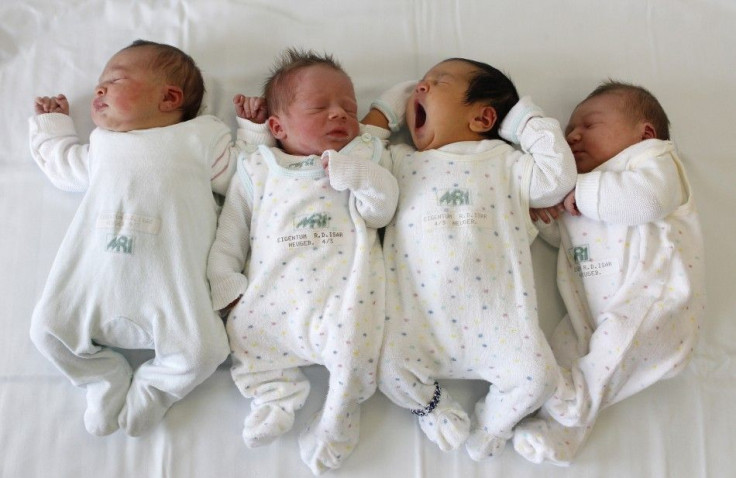Sperm Bank Baby Booms May Be Putting Children At Risk For Incest and Genetic Disorders

The lack of regulations governing sperm banks and fertility clinics may be having more serious consequences than previously believed, although some affected are trying to make the best of the miniature population explosions than can result from a single popular sperm donor.
The New York Times ran a story this week about a 48-year old woman who discovered that her son - conceived through artificial insemination - had 149 siblings, with more on the way.
Cynthia Daily used a Web-based search to connect with other families who had used her sperm donor, with the thought her son might be able to connect with a few siblings one day. But she could not have imagined the extended family would amount to the size of a typical high school graduating class in the U.S.
Daily's son is not alone - more and more parents who conceived using a sperm donor are learning their children have dozens upon dozens of siblings. The sheer volume of offspring from a single sperm sample, coupled with the high likelihood that the offspring will be close in age and live in close proximity to one another, is raising concerns about the possibility that some of these children -- many who are reaching adulthood -- may unknowingly become romantically involved with a half-sibling.
The threat of accidental incest sounds like a setup for a Farrelly Brothers comedy, but for children born of active donors, the possibility poses serious risks besides the eew factor.
Inbreeding - and for that matter, large numbers of children with the same parent - can spread genes responsible for rare diseases, potentially increasing the prevalence of those diseases. And children born of incest have a much higher rate of birth defects and health complications.
My daughter knows her donor's [registry] number for this very reason, the mother of a teenager conceived via sperm donation in California told the Times. She's been in school with numerous kids who were born through donors. She's had crushes on boys who are donor children. It's become part of sex education for her.
Does the Father Abraham factor point to a need for more sperm donors? It's hard to say...the issue seems to be one of perceived quality, not quantity. In sperm, as in life, some specimens are simply more attractive than others.
According to the Times report, critics complain that clinics and sperm banks are earning huge profits by allowing too many children to be conceived with sperm from popular donors. In some countries, there are limits imposed on how many offspring a single sperm donor can produce, but so far, no such restrictions exist in the U.S.
Because women who give birth through sperm donors are not required to report the child's information to sperm banks and fertility clinics - though some do voluntarily - the most reliable resource for families who conceived through a donor is Donorsiblingregistry.com, a resource created by Wendy Kramer and her son Ryan to provide children with information about their genetic origins. Here, parents and children can connect with unknown half-siblings by entering in their donor's registry number.
They [parents] think their daughter may have a few siblings, Kramer told the Times, but then they go on our site and find out their daughter actually has 18 brothers and sisters. They're freaked out. I'm amazed that these groups keep growing and growing.
Some donors complain that sperm banks willfully misled them into believing the number of children they might produce. One California-based donor, who wished to remain anonymous, told the Times that he discovered he had fathered dozens of children after his sperm bank promised him the number would be no more than give.
It was all about whatever they could get away with, he said of the sperm bank. It is unfair and reprehensible to the donor families, donors and donor children.
I was given a little quarter-page legal thing to sign that just said it was my responsibility to let them know if I had a sexually transmitted disease, was how Kirk Maxey, a formerly prolific donor, described his experience to ABC. And then the one line that said 'and this will remain anonymous.' Very vague and very general.
A separate ABC story described how a donor's child named Tyler Blackwell was unaware until he tracked down the father that he had inherited a rare and deadly aortic heart defect.
Tyler had a time bomb ticking in his chest, Blackwell's mother told ABC. It didn't occur to anyone to tell us.
We need to publicly ask the questions 'What is in the best interests of the child to be born?' and 'Is it fair to bring a child into the world who will have no access to knowing about one half of their genetics, medical history and ancestry?' Kramer told the Times. These sperm banks are keeping donors anonymous, making women babies and making a lot of money.
But nowhere in that formula is doing what's right for the donor families.
© Copyright IBTimes 2024. All rights reserved.












